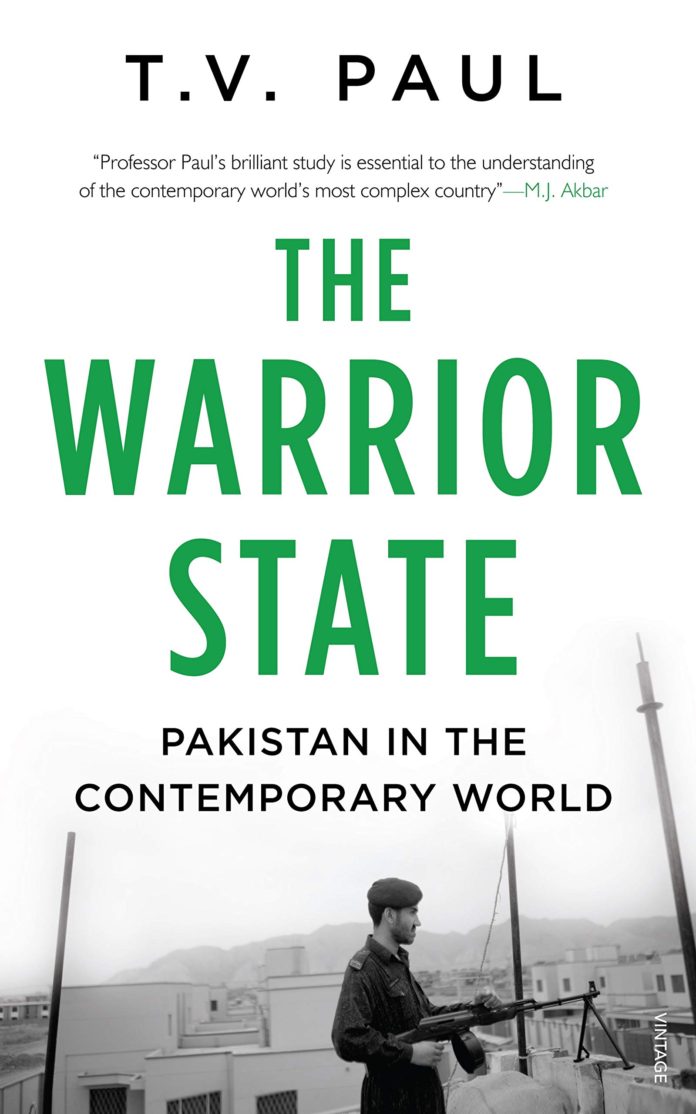Terrorism in Pakistan forced Islamabad to join the American-led war on terror and start a fight to prevent religiously motivated violent elements from becoming active on its soil. Pakistan’s determination for winning the battle against internal security threats pushed the entire nation into circumstances in which the government is doing its best to establish Pakistan as a land of peace and prosperity; the wave of economic crisis and social unrest have created a more challenging situation for state authorities. The dream of creating a stable and peaceful environment internally has affected the social, political and economic infrastructure of the country, and the mainstream leadership from Islamabad. In addition to internal security threats, the foreign threats emanating from India and Afghanistan as a result of New Delhi’s active Afghan policy by converting Kabul as an anti-Pakistan state have further intensified the regional security environment for Pakistan. The architects of Islamabad’s national security strategy are making efforts to overcome internal and external security problems, but still even a thin layer of success is demanding more state energies.
An analytical overview of Pakistan’s security problems has become an interesting area of study especially in the post 9/11 world when Islamabad joined Washington in its global counter terror campaign and decided to become a frontline state in American mission of preventing the global wave of terrorism. Intellectual circles in the international community started to examine Pakistan’s anti-terror fight and its impact on Islamabad’s main infrastructure generally, and on its economy particularly. Writers from different countries tried to present their scholarly investigations by overhauling Islamabad’s counter terror efforts. A multidimensional layer of literature began to mature portraying a complex picture of contesting arguments and disputing inquiries. South Asian writers also found it a fascinating direction to study the ongoing security issues of Pakistan. A number of scholars and journalists, mainly from India and Pakistan endeavour to deliver an exceptional version of their intellectual insight on Pakistan’s role in fighting terror and its direct impact on Islamabad’s economy which has noticeably deteriorated. Thazha Varkey Paul or commonly known as T.V. Paul attempts to sketch a different picture of Pakistan’s security problems and their impact on its economy.
T.V. Paul, initially educated from India, is a professor of International Relations at McGill University while having expertise on international security, regional security, and South Asian strategic affairs. He is a prolific writer having authored seven books, eleven edited volumes and various research papers. He is the founding director of McGill University of Montreal Center for International Peace and Security Studies (CIPSS). During 2013-14, he was the vice president of the International Studies Association (ISA). One of his books was selected for the Peace Prize Laureate Exhibition by the Nobel Peace Center, Oslo. As an academician, Paul has served at different prestigious international institutions and research organizations. The book under discussion reflects his rich knowledge about Pakistan’s economic crisis and its direct link with contemporary security problems of Islamabad.
The eight chapters of the book The Warrior State presents an attempt to cover different aspects of Pakistan’s worsening security situation on the basis of historically political and analytically varying patterns of its foreign and domestic policies for playing a role in regional and global politics. The book analyses the role of war and war-making in the developing world by studying Pakistan’s case, according to Paul. In the first chapter the writer outlines five fundamental questions related to Pakistan’s ongoing crisis and the role of internal and external environment in shaping Islamabad’s strategic culture. He further applies the Charles Tilly’s concept of “war made the state and state made war.” The theoretical comparison of weak and strong states and the historical battling experiences of European nations start the debate in the book. The geostrategic location of Pakistan which always remained a central point of gravity in the contesting international relations between the superpowers is called by Paul, Pakistan’s geostrategic curse. Along with this strategic curse there were seven points covering ideologically driven independence movement, the creation of a sovereign Muslim state in subcontinent, the nuclear quest, strategic parity with India, alliance with US, expansion of Islamic influence, and considering Kabul as a strategic orbit of Islamabad are the key security approaches which heavily prevail in Pakistan’s strategic mid-set (p. 25-27).

According to Paul, the roots of contemporary crisis in Pakistan are very much rooted in its record of turbulent history. A complex construction of ideological differences, violent sectarian politics, an unending race of civil-military political competition, supporting of Muslim world by joining American created defence pacts during the cold war, and separation of East Pakistan under a disturbed ethnic fabric, struggle of controlling Kashmir and promotion of Saudi-sponsored Jihad culture to defeat the communist forces of Soviet Union on American directions shifted Islamabad into crisis. The discussion of such factors is the central theme of the book which is purely a critical overview of Pakistan’s history. Chapter seven is the most interesting part of the book which compares Pakistan first with Muslim states (Turkey, Indonesia, and Egypt), then with non-Muslim national security states (South Korea and Taiwan). In the end, Paul views Pakistan as a state which is not learning from its experiences and failing to control the nightmare of terrorism.
The whole discussion in the book is the negative overview of Pakistan by indirectly defending the Indian role in the regional politics of South Asia. Paul’s quest in the book neglect Islamabad’s reactionary policies against New Delhi. In this way, it is India which forces Pakistan to take or push Pakistan for taking certain decisions such as empowering its conventional military capabilities. Moreover, it was India which forced Pakistan to depart from its traditional stance of creating South Asia as a nuclear weapon free region. Still in the nuclearized order of subcontinent, the Indian strategic moves force Pakistan to match its strategic capabilities with India by relying on an unending arms competition. Therefore, Paul’s entire investigation depicts a one-sided picture of Pakistan’s internal crisis without studying the role of Indian-oriented external forces which exerted substantial pressure on Pakistan for taking specific decisions for the security and protection of its sovereign status and territorial integrity; the writer explicitly negates the aggressive application of New Delhi’s regional hegemonic designs. Additionally, discouraging Pakistan in its efforts for addressing the core security problems, and comparing it with other states on improper levels communicate the writer’s imbalanced approach of matching states of different geographical locations and with different civilizational roots on the basis of few commonalities.
In short, Paul’s book is an excellent contribution to the ongoing academic trends of critically evaluating Islamabad’s ongoing crisis. Paul has correctly pointed out the immature and weak role of Pakistan’s leading institutions in preventing the wave of economic crisis and social unrest coupled with lack of good governance. The book refers to the work of different scholars for institutional improvement of the state engulfed with crisis analogous to Pakistan.





